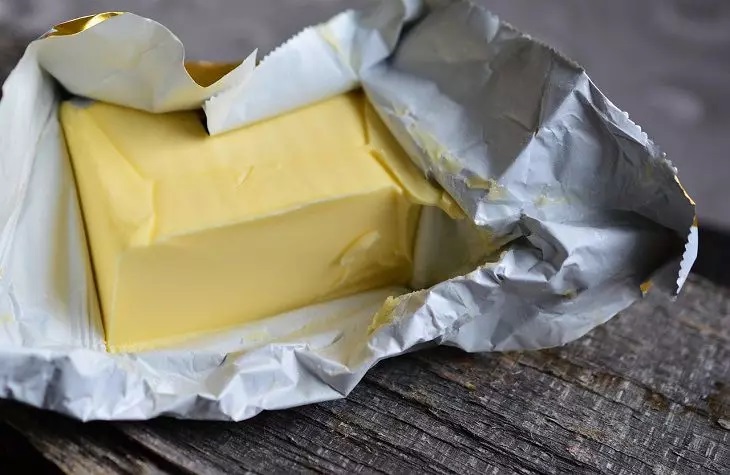Have you heard that butter is healthier than margarine and should be included in your daily diet?
Find out what oil really is and how it affects your health. Much of this information may surprise you.
What is oil
Butter is a natural fat of natural origin. It is made from cream, most often by churning, i.e. separating the fat from cow's milk. So it is a product of animal origin.
Butter has a characteristic cream or light yellow color and a pleasant delicate taste. A product labeled "butter" intended for sale must contain at least 82% milk fat.
In addition to this, the product contains about ten percent water and about 2% fat-free solid ingredients.

What nutrients does butter contain?
The oil provides, first of all, a large dose of energy – 100 g of the product contains as many as 740 kcal. It is a source of a small amount of fat-soluble vitamins, i.e. A, D, E and K, and minerals such as calcium, magnesium and zinc. It also contains lecithin, which supports memory and concentration.
Butter contains saturated fatty acids and trans fats.
So-called trans fats, or more precisely trans isomers, occur naturally in products from ruminants, i.e. cows. This means that they can be found in cream, milk, beef, and also butter. The latter product also contains more than 50% saturated fat. The presence of both of these components can be harmful to health - they increase the risk of developing atherosclerosis - a disease that is often called the "silent killer".
WHO recommends that the maximum amount of trans isomers in the diet should be 1% of the energy supply, while the Food and Nutrition Institute recommends the lowest possible intake of these substances.
For this reason, more and more people are giving up butter in their daily diet and instead choosing margarines rich in plant sterols.
These are substances that help reduce LDL cholesterol by 7-10% within 2-3 weeks with a daily intake of 1.5-2.4 g in combination with a properly balanced diet and a healthy lifestyle.
Butter is not suitable for frying.
Have you ever fried in oil? This is a serious mistake. This fat has a relatively low smoke threshold, about 100°C. Meanwhile, the temperature in the frying pan is much higher. And this leads to the fact that the oil quickly burns, releasing harmful substances that can even contribute to the development of cancer.
Therefore, in this process, it is worth replacing butter with a healthier vegetable fat, such as rapeseed oil. Also, baking oil is not recommended - the baking temperature also significantly exceeds 100 ° C.
The oil contains lactose
The lactose content of butter is not a problem for most people. However, there are those who struggle with lactose intolerance.
After consuming milk fat, they may experience unpleasant symptoms from the digestive system - such as bloating, discomfort, abdominal pain, diarrhea or vomiting. Therefore, with such an ailment, it is also better to avoid butter - unless it is lactose-free.
Should butter be completely eliminated from the diet or not?
There is no single answer to this question. If you are a healthy person and do not struggle with, for example, high cholesterol or similar problems, a small amount of butter should not harm you. If you spread it thinly, for example, one piece a day, the saturated fats or trans fats it contains will not pose a serious threat.
However, since there is a healthier alternative to this fat, it is worth considering making a choice that is good for your body. Replacing butter with margarine may be one of the elements that is important for maintaining normal cholesterol levels in the blood and thus for prolonging life.
In addition, it is worth taking care of other elements that affect health, including regular moderate-intensity physical exercise or including plenty of vegetables and fruits in your daily menu. A sensible diet combined with physical activity is the key to good health.








